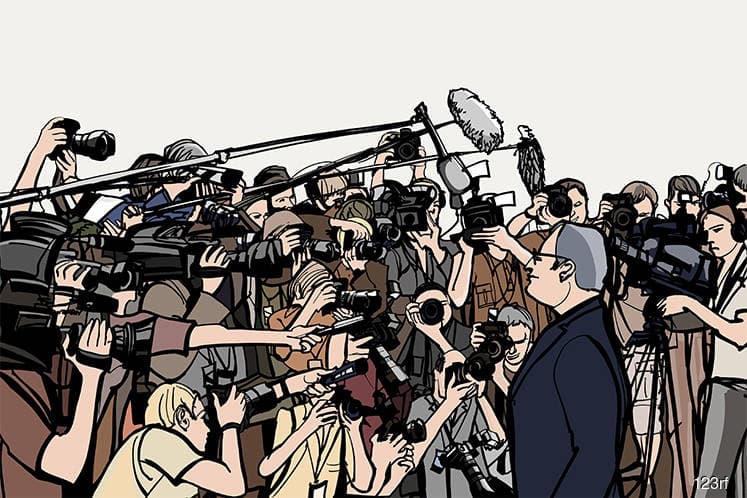
This article first appeared in The Edge Malaysia Weekly on May 6, 2019 - May 12, 2019
Since the last general election, the space for press freedom has expanded considerably. Almost overnight, the electronic and print media shed their political inhibitions, while censorship in many areas dropped, the most noticeable, of course, surrounding the issue of 1MDB. At first, the media appeared uncertain how to navigate the new freedoms, but now they have grown accustomed to them.
Of course, there is much room for even more press freedom. This year, Reporters Without Borders (RSF) ranked Malaysia at 123rd spot in its global press freedom ranking — up 22 places from the previous year and just above Indonesia, which was ranked 124th. Not bad at all, but it should be sobering for us to note that East Timor is now ranked 84th.
Clearly, there is much room for improvement. Repressive laws related to the media — such as the Printing Presses and Publications Act, the Official Secrets Act, the Sedition Act and the Communications and Multimedia Act — have not yet been repealed or amended. All these laws have penalties that hinder freer expression, critical views and whistleblowing.
There is also indirect censorship arising from the fear of mob pressure, court or legal action (for example, contempt of court and defamation) and police reports being lodged.
Of late, certain quarters have initiated moves to set up a self-regulatory media council. Such a council can only be effective if all stakeholders, including the public, are adequately represented. The council should not be dominated by the big boys, media owners and editors. At the same time, the repressive laws must be repealed. If this is not done, then a media council would be merely adding another layer of control over the press.
Perhaps the biggest breath of fresh air since the last general election has been Astro Awani’s Let’s Talk show, featuring a range of speakers on issues of public interest. This proves that serious issues, if handled honestly and professionally, can draw in viewership numbers and that there is no need to dumb down issues to attract a wider audience.
But there is a catch. The same freedom of media, including social media, has allowed certain quarters to play up divisive issues of race and religion. The media have to somehow take a more inclusive approach and counter such views that could undermine unity and social cohesion. This can be done by highlighting more inclusive and moderate approaches in policymaking.
The media need to also play a bigger role in countering xenophobic views by the majority towards vulnerable minorities such as migrant workers and refugees. They also need to be less urban-centred and make an effort to understand the concerns of the rural poor.
Online media also have to find a way to be financially more sustainable, given that advertising revenue has not followed the print media’s move to cyberspace. Instead, online media face severe financial constraints. One of the casualties is that fewer resources are available for in-depth investigative journalism.
Financial constraints faced by online news portals make them prime targets for funding from those with vested corporate or political interests. The problem is, readers of quite a few online news portals are unaware of who is financing these websites and to what extent that financing colours the website’s political and business reporting.
Such vested interests may make these portals reluctant to criticise the status quo, especially when it comes to questioning mega projects or certain assumptions in our economic ideology, for example, is relentless economic growth sustainable? Indeed, one of the biggest challenges facing the media is how they should respond to climate change.
Social media too are vulnerable to targeted messaging by political strategists seeking to capitalise on users’ likes, interests and behaviour in order to mould their voting preferences.
The other issue the media need to grapple with is to what extent they merely reflect majority views, which may be conservative, rather than project progressive views. For example, is there a robust attempt to raise awareness of why capital punishment should be abolished and why international human rights treaties need to be ratified?
All said, the new government, to its credit, has allowed a broader diversity of views to be aired in the press, but there is still much room for improvement. Perhaps one of the tests will be to what extent the media will be able to critically report on some of the more controversial policies of the present government.
Anil Netto is a chartered accountant turned activist and freelance writer based in Penang
Save by subscribing to us for your print and/or digital copy.
P/S: The Edge is also available on Apple's AppStore and Androids' Google Play.